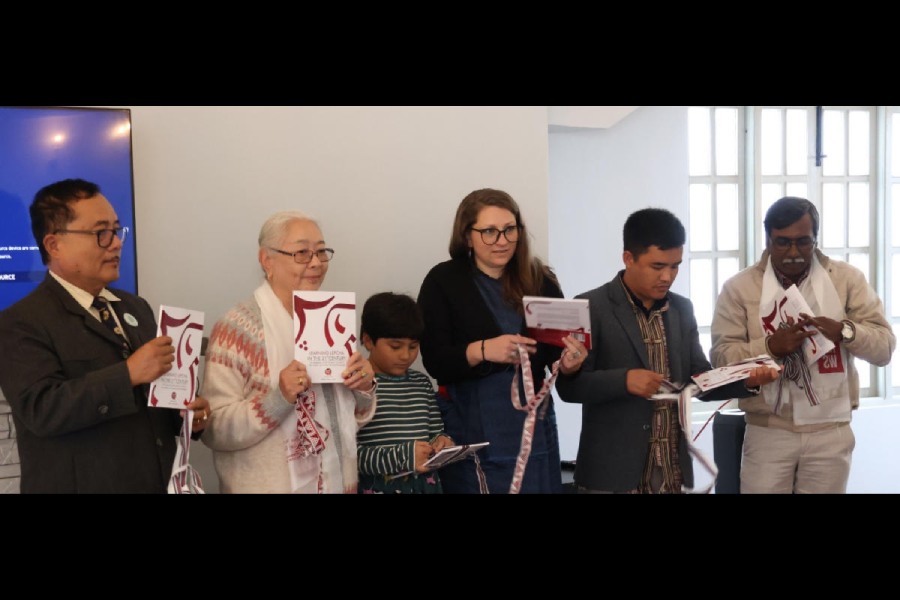Unesco’s classification of the language spoken by Lepchas as “definitely endangered” prompted a dedicated group of people belonging to the community to start initiatives to conserve their mother tongue.
It is estimated that only about 30,000 Lepchas can speak their language Rongring. The Lepchas primarily reside in Darjeeling, Sikkim, and parts of Nepal and Bhutan.
“When I found out that Rongring was classified as ‘definitely endangered’ in 2020, I decided to find out ways to conserve the language,” said Gideon Tashi Lepcha, an IT professional.
A “definitely endangered” language is one that children no longer learn as a “mother tongue” at their home.
Following extensive research, Gideon found that major challenges to the language’s preservation included decentralised content in Rongring and a lack of experts who knew the language and mode of transmission of the subject. “I found out 95 per cent of the Lepcha speakers were in villages but 90 per cent of them did not know how to read and write. The language didn’t pass down generations because of that also,” said Gideon.
Gideon and three of his friends, Abel Rongong, a language expert, Jongmit Lepcha and Martha Lepcha, both language teachers, devised a “Wangboo Framework” in 2020 to teach Rongring in a simplified, attractive and modern way. Wangboo means skilled in Rongring.
Within one-and-a-half years, 300 people from more than 12 countries like Japan, Canada, The Czech Republic and Italy joined their global online course.
“Those who joined our course were basically linguists, researchers, Lepcha enthusiasts and members of the community,” said Gideon.
The team also held eight webinars on varied issues like Lepcha calendar, music, culture, calligraphy, script and language and more than 8,000 people attended them.
Their initiative made an impact globally. “When I joined the first batch of the online course, I found it was not at all difficult to learn the language. Thanks to this wonderful online course, which I attended from North America and India, I am quite confident about reading and writing in the Lepcha language,” said J.S. Simick, a retired surgeon.
Community members also started the Noangten-meaning propagation of the Lepcha language, with youths holding language classes in villages of Kalimpong during weekends.
However, with the initiative growing bigger, the youths decided to hand over the initiative to the Rongring Lepcha Culture and Welfare Society (RLCWS). The non-profit organisation formed in 2021 consists of members of different walks of life, including retired IAS and IFS officers.
On Saturday, the RLCWS, launched a website and mobile application called “Rongring” in Kalimpong.
“The number of people speaking our language has definitely not grown. The language is slowly coming into disuse and we are hopeful that new initiatives like the launch of the app will play some role in conserving our language,” said G. Namchu, president, RLCWS.
The team also developed QR codes that will make pedagogy more precise. “One can just scan the code to learn various aspects like pronunciation and sentence framing,” said Gideon.











